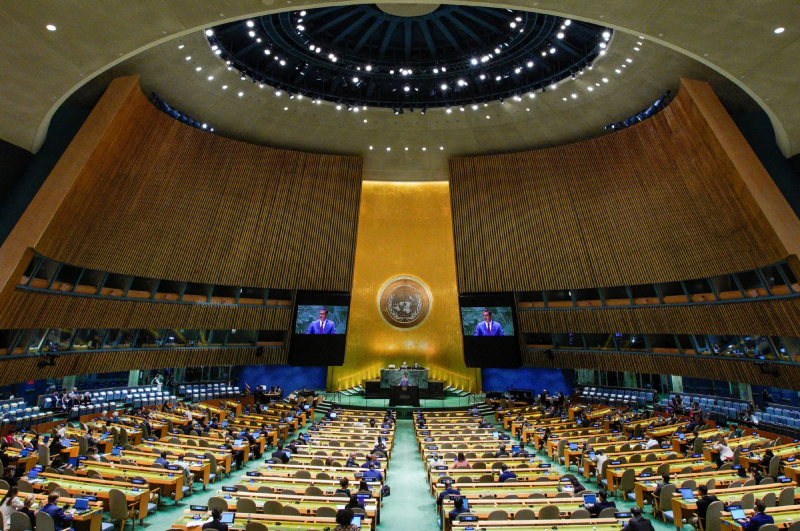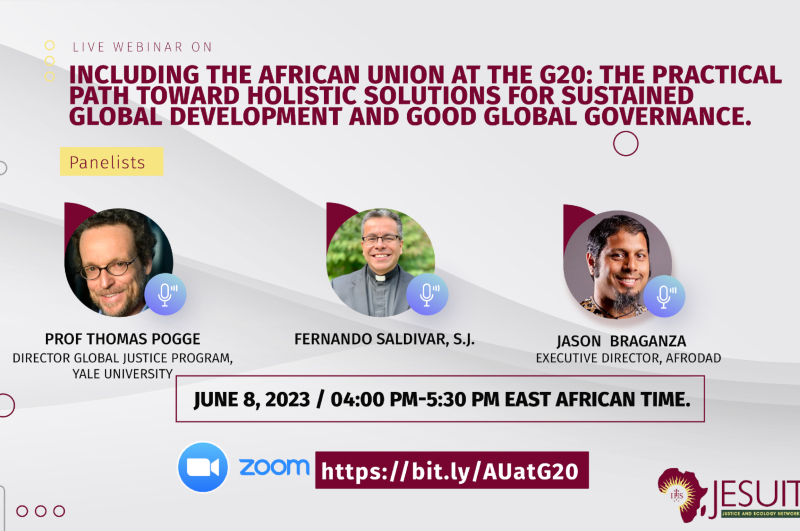

The Jesuits Justice and Ecology Network Africa (JENA) organised a webinar with the theme, “Including the African Union at the G20: The practical path toward holistic solutions for sustained global development and good global governance’’.
Background to the Webinar
International cooperation and multilateralism have become formidable drivers of economic development and improved human welfare. Countries seek alliances and align with partners to promote their development agenda. Equally, cultivating a collective action towards common challenges enhance the capacity to combat development challenges. Africa is looking for new opportunities to advance its development agenda. The ensuing global order brings to perspective the role and impact of the African Union in the corridors of global power and how African Union (A.U) can situate itself in this new order . Unending global complexities usher a new order where every region should express itself on issues impacting them. Presently, Africa is under-represented on platforms making policies that impact Africa. The A.U championing the continent’s interest in global prosperity by associating with the G20 is a timely conversation inviting all quarters’ attention.
Why particularly the G20?
It is in doubt that the world has experienced unprecedented events in the last decades, the Covid-19 pandemic being the most recent. A world with crises is inevitable. Global alliances that can wade through these crises are timely and effective for addressing cross-border issues without joyriding. That necessity has led to countries coining agreements and alliances to form what has been euphemistically called the “Club of rich countries “and rarely used “Club of poor countries.” “Rich” or “poor” connotations show the geopolitical alignments and economic and financial interests that unite particular countries. Anecdotally, the formations leading to these alliances are designed to give such groups formidable power to inform and influence global policy.
With its massive population but high-income inequality characterized by high poverty levels and low human development, the region remains trapped in poverty despite its rich endowment of resources and young population. The statistics show that 42% of the world population lacks the purchasing power to feed themselves, showing the worst disparity. A compelling justification for the inclusion of A.U. joining this block enables it to amplify its voice in global economic policies to shape discussions that specifically echo the region's development needs. The global situation is undergoing massive changes-- a complex financial climate, climate change with economic implications, and the threat of competitive currency devaluations—leading to global space that calls for inclusion in spaces broadening economic improvement and enhancing democracy. African leaders should demonstrate their commitment to equality through fair representation of the people but also show genuineness in their capacity to address the needs of the people they represent.
The Group of Twenty (G20) comprises 19 countries plus the European Union. G20 was formed to respond to the global financial crisis that left fault lines in the global financial systems. These countries command financial muscles and sway regional policies in their respective regions. So, coming together in this block, the G20 is essential in global financial architecture and economic and policy issues governance. The G20 accounts for around 85% of the global GDP and 70% of the global trade. In a growing globalized world, every country wants to be part of both policy design and implementation, and as such, there have been calls for the African Union (A.U) to join this forum.
Webinar Themes
1. Joining G20 on Social and Economic Pretext - Prof. Thomas Pogge (Addressing the vital question: "What's the best way forward to ensure African voices, needs, values, and interests matter in world affairs?")
Prof. Thomas Pogge gave the social and economic imperatives that should warrant the A.U. joining the G20. On the social front, social crises dogging the region warrant an impelling reason for the A.U. joining this block. In his opening remarks, he pointed out that G20 comprises self-selected countries, forming part of the group based on their economic importance. The composition alone gives the impression that economic importance triumphs over the advancement of human welfare. Thus, the failure in the world economy is best captured in the data showing that 3.1 billion of the world’s population cannot afford healthy diets, estimated at $ 3.54 per day. This dire situation is contrasted by a global per capita income of $55 per day, a measure by which the global economy rates its progress. Using the metrics presented by economists, it remains wary that of the 3.3 billion people not part of the G20, 1.4 billion are Africans. Since much of the stakes in the global economy lie with Africa, it is imperative to express its voice on the world economy from an insider perspective than a mere recipient.
The idea of picking the most important states to form a block needs to pay attention to the spirit of cooperation and shared prosperity. Clipping the capacity of developing states to make decisions when expected to abide by similar decisions reeks with sheer mischief of failing to advance human progress and shared prosperity. Amplifying the voice of the 1.4 billion Africans with no healthy diet provides a clear-cut reason to push for AU membership in the G20.
2. Role of civil society and building solidarity- presented by Fr. Fernando Saldivar, SJ (Presentation on Pope Francis' perspectives on multilateralism, global governance, global justice, and their alignment with the African Union's potential role in the G20)
He brought into perspective the interaction between the state and the church, elaborating on the spiritual and ethical underpinnings of including the A.U. This view of the church engaging in governance matters, in what may appear as dalliance of the church and the state, comes as a shift from the traditional model where the church rarely involves in governance to a coordinated approach that brings all stakeholders under a common umbrella. On the efforts of the church to realize a just order underscored by human dignity regardless of colour, race or caste, Pope Francis, in his second encyclical, Laudato Si’, elaborates on the reach of the church to relooking its contribution to a global space that may bypass the needs of the poor. He observed that Laudato Si’ engenders a spirit of togetherness that builds on interconnectedness as a tool for creating a just political order and human dignity. With further emphasis, Fr. Fernandez observed that radical interconnectedness is necessary as present crises continue to impoverish human dignity. Notably, integral ecology is more striking in the encyclical by espousing the need to unify the social, economic, ecological, and political dimensions of economic activities and engagement while furthering human dignity.
To illustrate the centrality of unity and interconnectedness, he pointed out the recent Covid-19 pandemic that upended lives. The pandemic brought financial, economic, and social pressures, necessitating rethinking human politics to affirm principles of unity. In the future, multilateralism becomes indispensable as the pandemic shows how important a collective effort comes in handy during such events. But vaccine inequality was more evident in Africa, a compelling reason for the continent to join the club of a global powerhouse.
3. A legal perspective on A.U’s quest to join G20 - presented by Joan Atim (Presentation on The significance of AU's inclusion in the G20 from a legal and fiscal perspective with a focus on global financial justice).
In her observation, the G20 shapes and strengthens global financial architecture and designs economic policies. This club is not a standard body with a legislative imperative. The body operates on soft law and borrows international law for its operations. G20 members operate on the spirit of cooperation given that in a multi-polar world order with increasing economic globalization and technological breakthroughs not exempted from financial crises and interventionism. The situation under such contexts is a win-lose situation when countries do not cooperate. She reiterated that a legal imperative might not exist to join such groups of countries, but countries aim for shared prosperity. For countries, opting for peace and informal mini-lateral processes seeks to provide political and strategic leadership. From a political perspective, the G20 forum offers an institutional structure that champions international relations and gives hope that should reverberate across the region.
In seeking to promote peace and development, the developed nations now bear the obligation and responsibility of working with developing countries for shared prosperity. Since the actions of these global powerhouses directly Impact the international financial system and economic cooperation, the A.U. joining G20 is a likely pathway for the region to enter the global marketplace by creating a fair representation. Formed to provide a global governance system, G20 is a top-level political weight that can drive political leadership and policy direction. Unlike the United Nations, through its charter that provides global legitimacy and accountability, the G20 resorts to soft language and diplomacy.
She also mentioned notable efforts by the G20, such as the 75 health commitments it made from 2014-18, and in 2020 it made 47 health commitments expressing its reach in influencing global policy. The G20 can ensure economic justice in international trade through its traditional dialogue. With most of these crises transcending national boundaries, it will take intergovernmental cooperation to resolve any macroeconomic issues, such as loose monetary policies that may have spillover effects on other countries. Thus, the call for A.U. to join the G20 forum has recently received support from German Chancellor Olaf Scholz. With fairness and justice in the global financial system, the imbalanced financial post-Covid-19 pandemic that disproportionately affected Africa reveals the need for fairness to resolve any unfairness that hampers international cooperation. Adopting OECD pillars 1 and 2 on tax and global minimum tax provides a clear view that including A.U. in the G20, forum would redress financial challenges in global trade.
4. Africa’s Debt Distress and A.U.’s Membership in G20- presented by Jason Braganza (Insights on The essential steps for ensuring the African Union's membership in the G20 is meaningful and impactful).
He presented on the imbalanced composition of the G20 forum. He reiterated that G20 is comprised of leading world economies and emerging world economies. Even within such a composition, seven major economies make critical decisions, implying that countries still need equal voices even within the group. He provided a different view that G20, as a club of rich countries, seeks to advance its members’ interests, which may vary with developing countries’ interests. The G20 financial architecture presents an imbalanced forum that does not appeal to developing economies. He pointed out that the U.N. offers equal opportunity given the members’ voting rights, unlike G20, which appears to offer an imbalanced approach. On important issues that affect Africa, most of the G20 members have always voted on the contrary giving an impression that the A.U. may not get favourable terms even if it joins the G20. For instance, the G20 voted against South Africa’s setting up a vaccine facility. Further, the G20 members have treated Africa’s debt situation unfavorable. Another issue highlighted was A.U’s capacity to engage in G20 without limiting its participation in the U.N. He noted that the A.U Agenda 2063 calls for its full attention without necessarily seeking a position within the G20 forum. He concluded that as Africa’s role continues to expand in the global financial economy, Africa’s position will attract global powerhouses. He considered new openings, such as the African Continental Free Trade Agreement, offering the region a promising future.
Questions and Response Session
1. Africa is seeking new partnerships, such as its Indo-Pacific alignment, but what is the ‘why’ of the African Union joining the G20?
Positioning with the G20 is convenient for the A.U. for the forum’s reach on the global policy agenda. It is believed that the G20 is not a perfect forum, but it makes important decisions that impact the global economic situation.
2. What challenges and opportunities exist that can strengthen A.U joining the G20?
Rarely do those who should care for the region takes their position into perspective. Catchphrases such as pushing developments for the youths, mainstreaming gender, and using development-oriented language with little action remain challenges in the continent. Moving from this show exercise to practically implement actions that impact people’s lives and genuinely address them. But again, important G20 members might not care what happens in the developing world if it does not affect their interests. On the flip side, the developed nations require the market in the developing economies to advance their technologies. Since much of the natural resources for developed countries come from Africa, peace and economic stability in the region are instrumental in advancing the industrial processes in G20 countries. Africa as a whole is not seen as a monolith where South Africa is a representative of the continent’s needs; for instance, the stand of South Africa on the Ukraine war does not resonate with all the African countries, and the dynamics of South Africa is not synonymous with the region. So bringing the A.U. to the table would capture the diversity and representational view of the region, and participation in the G20 does not in any way conflict with its commitment to the U.N.
3. Why do we need multilateralism when U.N. exists?
These fora have tremendous influence and should be addressed despite our view of their inappropriateness. The appropriate concern is whether A.U. will be heard in such a forum. The U.S. political system was used to illustrate the misrepresentation in a system fueled by money where special interest groups buy political representation, dampening the connection between the people and governments. In such cases, governments full of government representatives drawn from self-interested groups inappropriately address people's needs. So it is not guaranteed that governments (unfairly composed) would feel responsible for fast-tracking people’s aspirations. The changing dynamics have pushed the G20 from its initial focus and now targets various global issues. It remains pertinent for A.U. to push for its inclusion due to the dynamism and diverse issues facing the region and world. In addition, the UN. Borrows from the OECD and members of the OECD in the U.N. is a better demonstration that the inclusion of A.U does not limit its engagement with other global partners. Such inclusion is also expected to raise the stakes of the A.U., leading to accountability and visibility on areas hampering the region’s development. Looking at the issue through a political economy lens, a different view was of the A.U. To hold the political leaders to account, noting that the U.N had the better accoutrements to hold these groups to account.
4. Does Africa need G20 or G7 for its development?
A holistic view of development is understood from a social and cultural perspective. Value determination varies across cultures implying that priorities for the African region can contrast with the interest of the global North. That notwithstanding, aiming for shared prosperity in a globalized world where common challenges exist, countries will rethink new forms of multilateralism.
Africa being fragmented limits its reach. An incident is given concerning the Africa Tax Administration Forum based in South Africa that could not easily reach a consensus on a common ground on tax view; this fragmented nature calls for an inward introspection to guide the region in fronting a common voice in its policy agenda. The global space is now exposed to diverse issues transcending national borders, making G20 keep changing its mandate. It is just ideal if A.U. gets its voice in such growing platforms. Participation of A.U. in the G20 forum will enhance its solidarity with its global partners.
5. How do you see the potential impact of A.U. inclusion in global governance and the promotion of global solidarity through G20?
Inclusion is backed by political reality, which calls for Africa’s inclusion to participate in policy design to give its voice. There is a need for an African perspective in the policy design for broad solidarity. Failing to bring Africa on board at the initial stages of policy formulation and decision-making hampers global solidarity to combat common developmental problems.
In the concluding remarks, the panelists made the following observations. Firstly, the A.U. should address its internal weaknesses to resolve political instability in the region effectively. If Africa builds a strong image, it will develop a bargaining power to have a voice in the global marketplace. Africa must combine its acts to speak with one voice and connect with the people they represent. The issue of leaders speaking for Africa brings legitimacy and the ability to appeal to global partners that the leaders care for the interests and amplify the people’s voice. For instance, African leaders should create the impression that they care about the interests of the people they represent. Leveraging the G20 involvement provides a perfect opportunity to forge partnerships and mobilize resources for its development agenda. Inclusion in the G20 forum will enhance justice promotion, increase influence, shape the discussion and create opportunities to elaborate its development agenda, such as the Agenda 2063 and the African Continental Free Trade Agreement.
Secondly, civil society, including the church, ordinary people and the press, is critical in bridging solidarity. Governments should account for their actions and management of public resources, with civil society keeping them under check. Groups across the region can support each in amplifying the continent’s voice for reforms. Such efforts can build solidarity in moving forward the development agenda for the continent. Lastly, in attaining a stable and development-oriented continent, the A.U should account for its progress, taking stock of its developmental leaps and gaps to enable it to align well with other global powerhouses for its prosperity. Lastly, the global economic and policy developments should be accelerated by Africa taking a concerted approach, firstly working on its internal mechanisms for accountability and then forging networks with other partners. The A.U. amplifying its voice on global issues requires its active participation on global platforms, not in a representational capacity but being a permanent member in G20 and global platforms with sway on global policy formulation and governance.
We would like to thank Jesuit Justice Ecology Network Africa (JENA) , Academics Stand Against Poverty (ASAP), and Global Justice Program at Yale University, the panelists and all the participants for their contribution towards the success of this webinar.
Related Articles
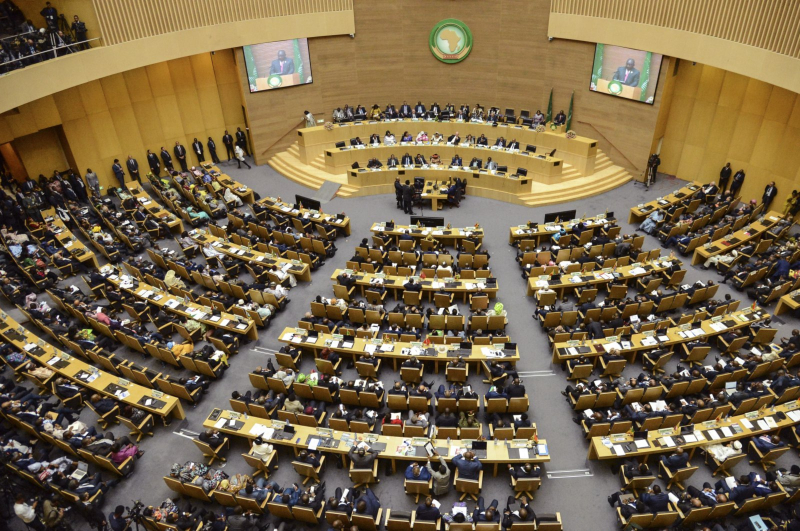
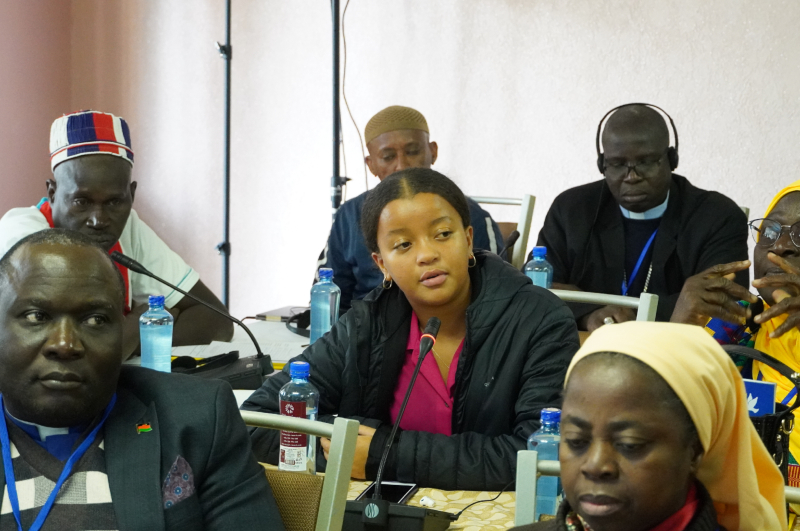
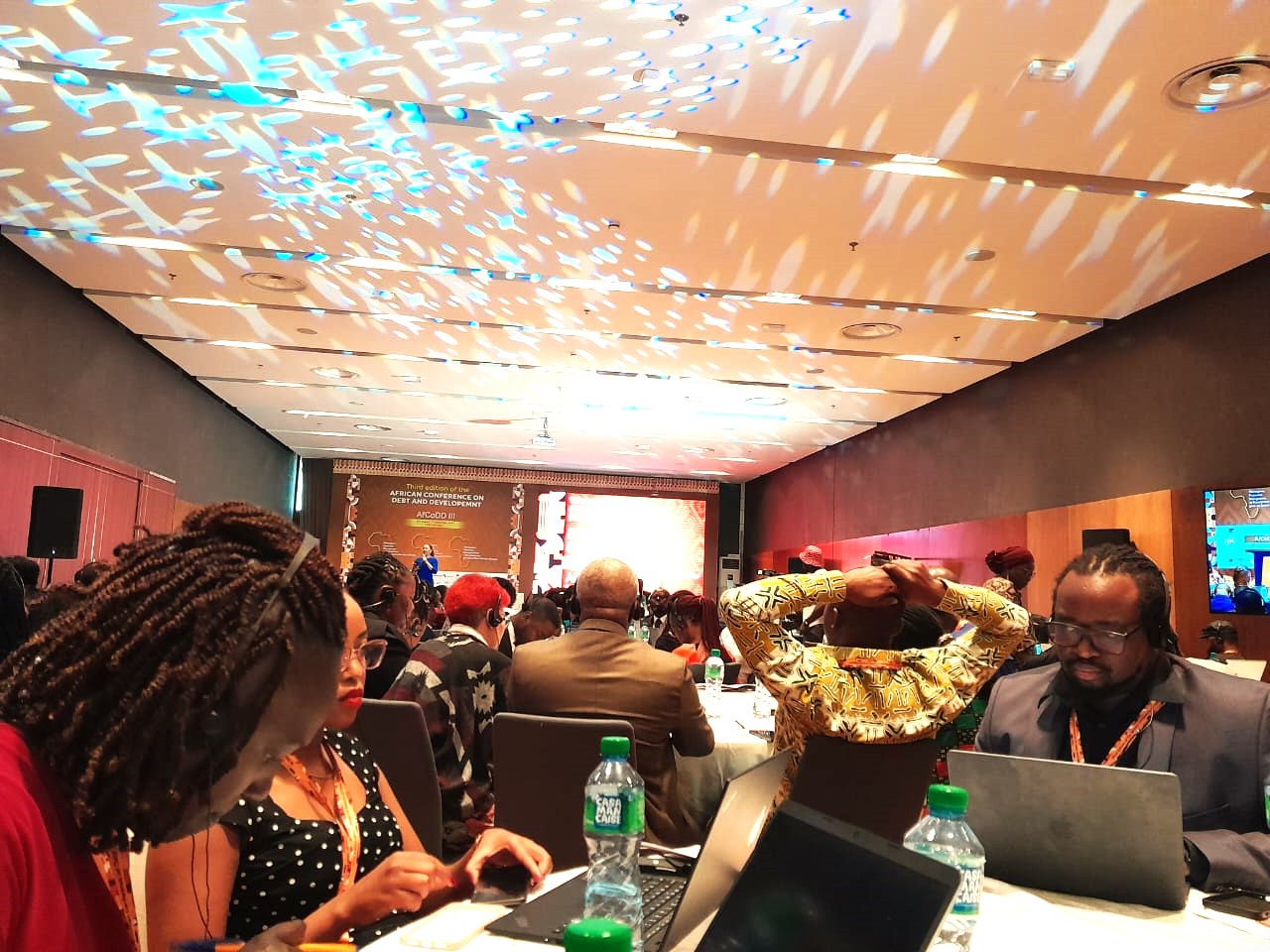
Select Payment Method
Pay by bank transfer
If you wish to make a donation by direct bank transfer please contact Fr Paul Hamill SJ treasurer@jesuits.africa. Fr Paul will get in touch with you about the best method of transfer for you and share account details with you. Donations can be one-off gifts or of any frequency; for example, you might wish to become a regular monthly donor of small amounts; that sort of reliable income can allow for very welcome forward planning in the development of the Society’s works in Africa and Madagascar.
Often it is easier to send a donation to an office within your own country and Fr Paul can advise on how that might be done. In some countries this kind of giving can also be recognised for tax relief and the necessary receipts will be issued.


